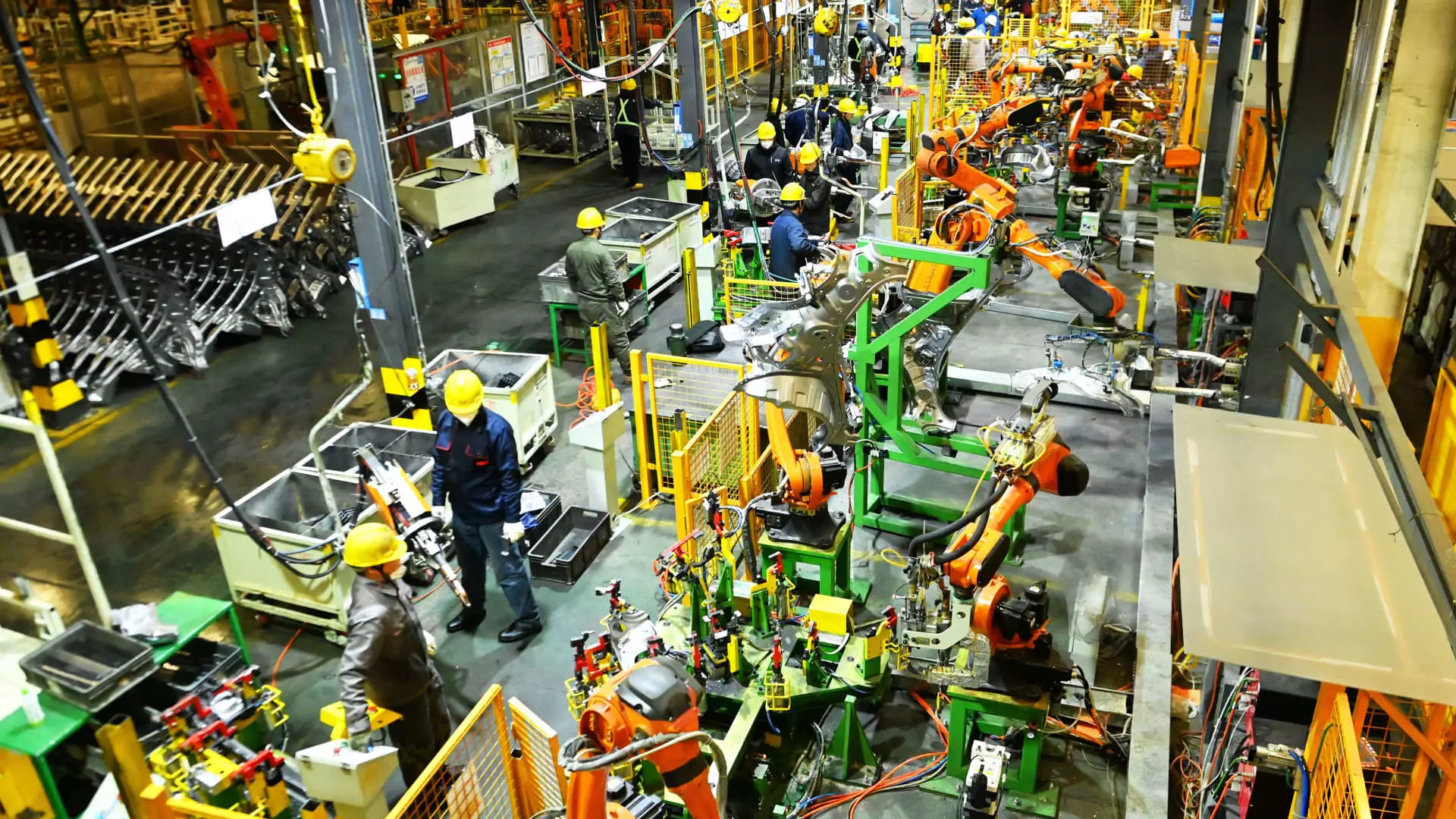As the Biden administration grapples with a rolling reverberation from the trade policies of its predecessor, the automotive industry stands at a precarious crossroads. It’s unfortunate yet crucial to note that the repeated imposition and potential exemption of tariffs have become the signature hallmarks of a political strategy that oscillates between aggressive nationalism and the need for economic stability. President Biden’s tentative approach to tariffs—where potential exemptions are dangled like a carrot before automakers—has not only muddied the waters but has also reflected the conflicting priorities of an administration striving to secure American jobs while confronting global trade dynamics.
Many auto manufacturers were breathing a sigh of relief this week as reports emerged suggesting that some tariffs imposed during Trump’s reign might be re-evaluated. However, the psychological impact of such uncertainty cannot be overstated. The auto industry is not just waiting to see if these tariffs will be alleviated; they’re in urgent need of a stable regulatory environment to plan production, investment, and employment strategies. The industry’s collective voice has rallied against the impending auto parts tariffs, urging the Biden administration to consider the cascading effect that further levies would have on an already strained supply chain.
Politics at Play: The Lobbying Effort
It is no secret that major corporations rely heavily on lobbyists to sway policy decisions, and the automotive sector is no exception. Recently, six prominent policy groups, comprising dealers, suppliers, and virtually all major automakers, united in what can only be described as a rare moment of solidarity aimed at advocating for an end to the impending auto parts tariffs. The phrase “together we stand, divided we fall” couldn’t be more applicable here; without a united front in lobbying against these tariffs, individual companies risk facing insurmountable costs that could jeopardize their very existence.
The forthcoming tariffs on auto parts have raised the specter of doom for many suppliers who are already teetering towards bankruptcy. The irony here lies in the administration’s intent; while attempting to protect American jobs, the cumulative effect of such tariffs would actually endanger countless positions within the automotive supply chain. The statement by General Motors CEO Mary Barra underscores this paradox: the need for clarity and consistency in trade policy is more than just corporate jargon; it’s a lifeline for an industry staring into the abyss of uncertainty.
Economic Reality vs. Political Rhetoric
The broader economic implications of these tariffs cannot be ignored. While President Biden attempts to posture as a defender of American manufacturing, the reality is that these tariffs are more like a double-edged sword—promising protectionism while simultaneously risking catastrophic fallout. The political rhetoric surrounding “America First” gravely oversimplifies an intricate global supply chain. The interconnectedness of international trade means that tariffs on foreign products often lead to higher prices for consumers and a squeeze on domestic manufacturers who rely on imported parts.
The fervent debate surrounding the automotive tariffs reveals a fundamental disconnect between political ideation and economic pragmatism. The abandonment of free trade principles in favor of short-term political gains might earn applause in certain circles, but it serves to undercut the very industry it seeks to protect. History has shown us that protectionist measures often backfire, leading to job losses rather than gains, as manufacturers will inevitably pass on the costs to consumers or downsize operations.
A Call for Strategic Thinking
If the Biden administration is serious about revitalizing American manufacturing, it must pivot towards a more nuanced understanding of international trade. The current stance—embedded in the rancor of past administrations—will not suffice for an industry that needs space to innovate and adapt in a rapidly changing market. The automotive sector should be seen not just as a contributor to economic output but as an intricate part of an ecosystem that drives technological advancement and sustainability.
The pressure for policy coherence will mount as the automotive industry braces for an uncertain future amidst an ever-compounding series of tariffs and exemptions. It’s time for the political apparatus to step back and think strategically rather than politically; the best action is to foster an environment where the American auto industry can thrive not just from protection, but from innovation and competitiveness on a global stage. The road ahead is unsteady, but with a commitment to thoughtful policy, the destination could lead to both economic stability and growth.


Leave a Reply